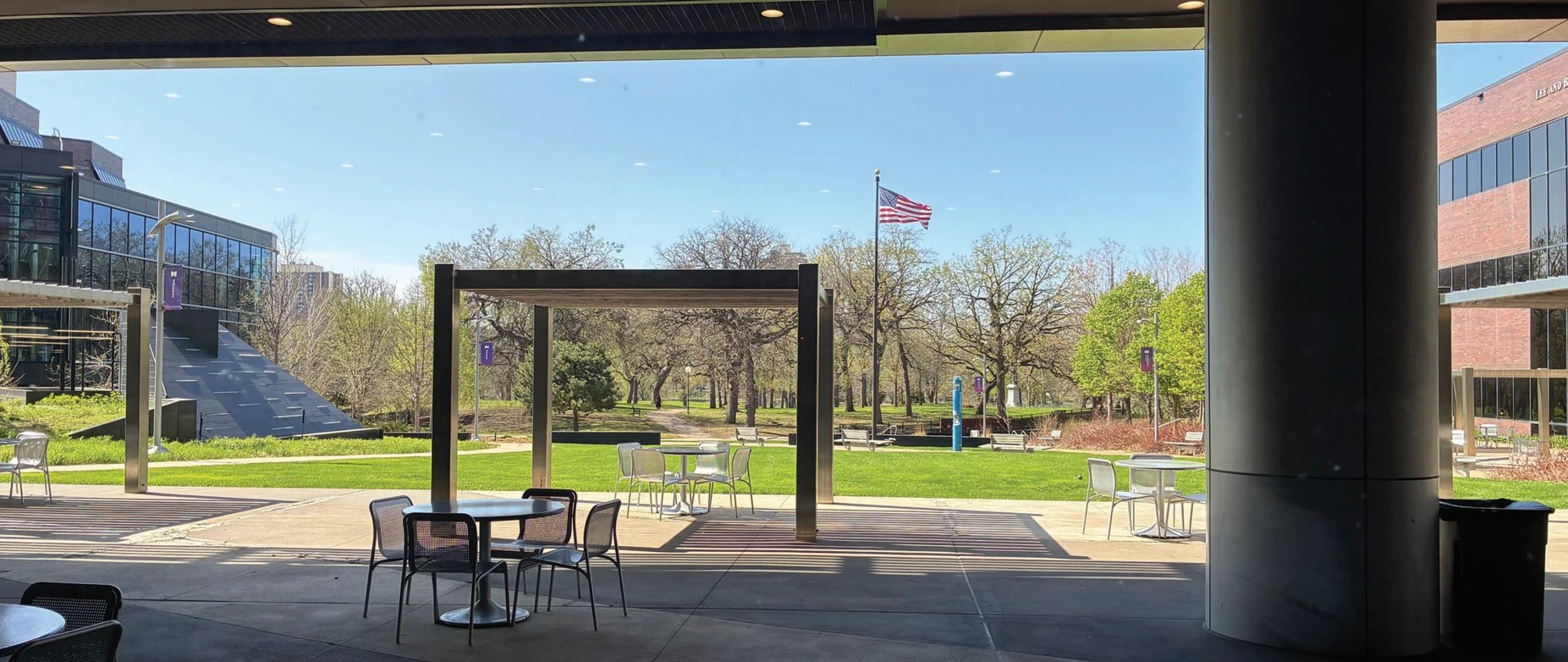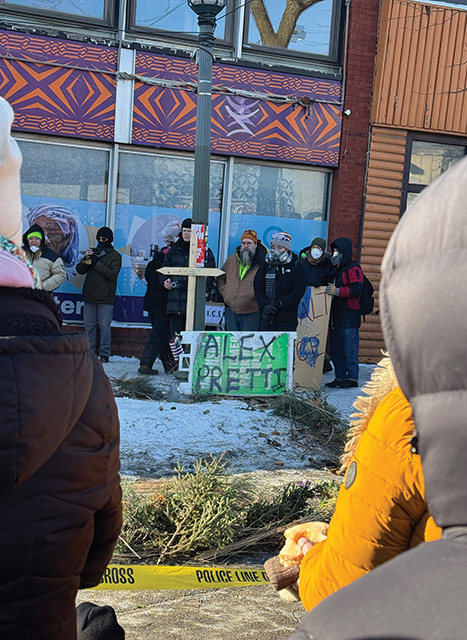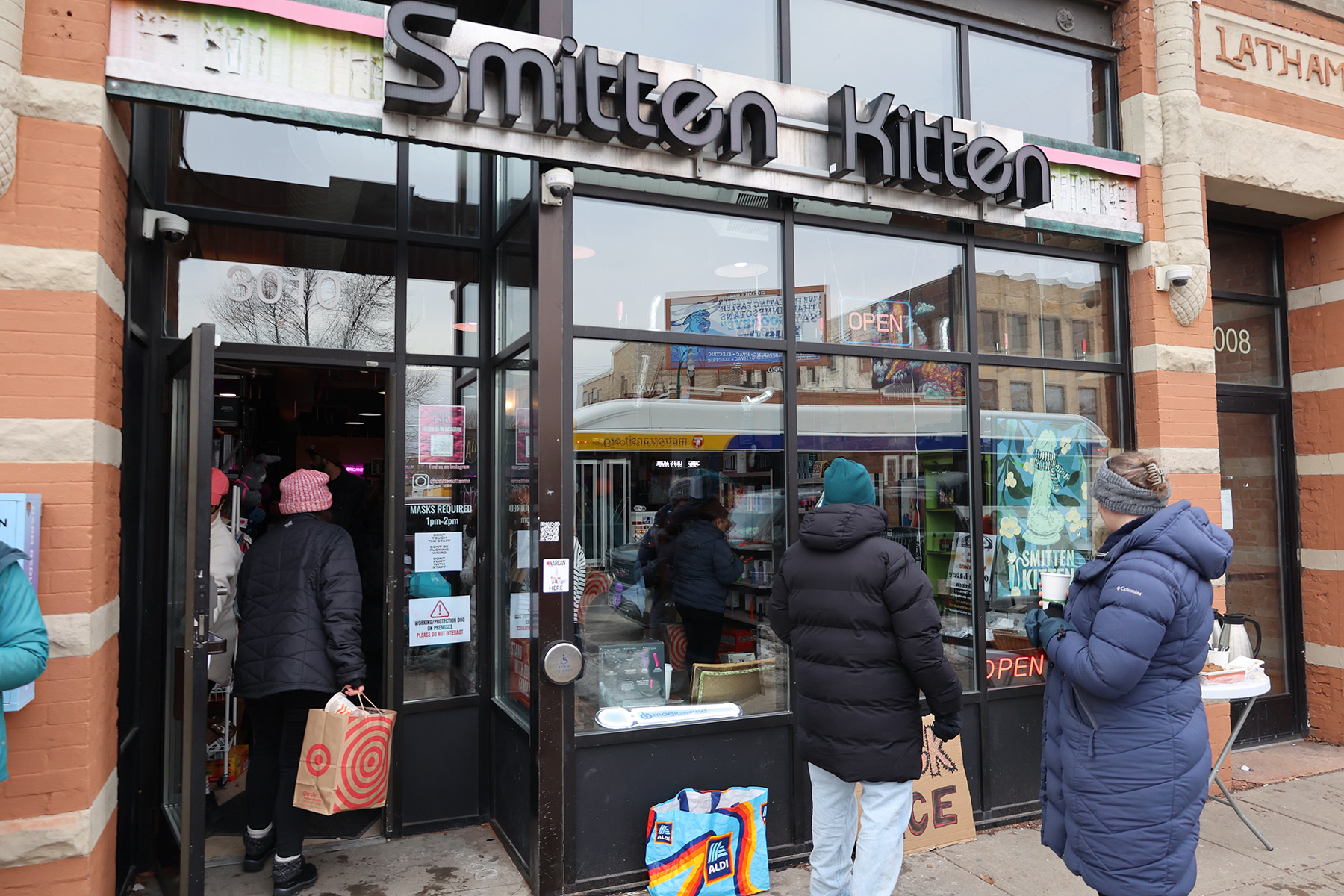For decades I’ve driven and biked past Minneapolis College, which fronts onto Hennepin Avenue and backs onto Loring Park, but to my shame I was never curious enough to poke my nose in the door to learn more.
That changed when my friend Bryce Hamilton invited me to tour the college with a group of people from Plymouth Church. While the Hennepin entrance to the campus has a some- what chilly facade, the Loring side is all windows and light, spilling a warm welcome out onto the park.
When we entered the building, we received an equally warm welcome from Pashell Johnson, Alumni and Constituent Relations Manager, who gave us some background information before showing us around the campus.
The college formerly known as MCTC
The college has had several names over the years, most recently MCTC (Minneapolis Community and Technical College) but is now simply Minneapolis College, one of 33 colleges and universities in the Minnesota State system. It offers more than 100 associate degrees, diplomas and certificates, which can lead directly to careers, or be transferred to four-year colleges and universities.
Minneapolis College works closely with Metropolitan State University and Augsburg University so students who want to go on for a four-year degree have a smooth transition. “It’s nice to know that someone is looking out for you, that someone wants you to continue,” said a former student, now an instructor in the nursing program.
A Remarkable Tour
Our first stop was the bicycle workshop where 34 workstations allow students to assemble bikes that arrive in boxes and to repair the ones already in use. It is one of two such programs in the nation, the other one being near the Walton family hub in Arkansas. The field pays a livable wage, and the program has a 100% placement rate, likely due to Minneapolis being such a bike-friendly city.
Next was the HVAC lab, full of, no surprise, furnaces, vents, ACs, walk-in freezers and even a dummy house ready to be heated or cooled, every semester. From there we went to a large nursing classroom where a dozen medical manikins lay unblinking in tidy beds, awaiting catheters and intubations or post-partum care.
Nursing students graduate with an RN, but to be accepted into the program they must have passed several science prerequisites with a B or higher average and demonstrated a proficiency in English. Those who struggle are given more time and instruction and may apply again.
The college also offers a full range of classes that would be found in any liberal arts college, from creative writing to chemistry. We dropped in on students in a drawing class, whose work we’d seen on display in the fine arts building, and a fashion design class, where students were preparing final projects for their year-end fashion show — a celebratory display of creativity and cultural flair.
Our last stop was the TREC homeroom. TREC, which stands for transformation and reentry through education and community, provides “college degree programs to incarcerated and justice-impacted students as pathways to sustainable careers, community engagement, prison reduction and life- long freedom.”
TREC was started in 2021 and is a partnership between Minneapolis College and Metropolitan State University, offering in person classes at three Department of Corrections facilities — Lino Lakes, Faribault and Stillwater — and on the Minneapolis campus for those reentering society. The TREC Partnership offers an associate degree track through Minneapolis College and a bachelor’s degree track through Metropolitan State University.
One student, who received two master’s degrees while “inside” and is now “outside” and studying for his Ph.D. in psychology at Metropolitan State, described the challenges of finding housing and employment when you have a criminal history. “We’ll make that final interview, even be shown an office, and then a Google check shows our record and the job offer is retracted with no reason given. Pretty soon that internal narrative kicks in — no one wants me — and you give up.” TREC offers education, hope and a lifeline to stability.
Sharon Pierce, president of the college, joined us for a few final words. We wondered if ICE has had an impact on the college. ICE has not been on the campus, she said, but she noted its chilling effect on students and community. “We have tried to be proactive, educating our community on what their rights and responsibilities are,” she said.
“All of our students deserve the best that we can give them and we meet them where they are and get them to where they want to be. The work we do is absolutely transformative. It transforms lives.”
Questions Remain
On the way home I questioned why I knew so little about this remarkable college where students who deeply want an education can get one, and thanks to affordable tuition, Pell grants and scholarships, can do so without going into lifelong debt.
And I questioned why a consortium of nonprofit groups received $9 million from the State Legislature last year to convert the former YWCA building in Uptown into the Rise Up job training center, when this affordable, open-to-all college, with accredited instructors, transferable credits and job placement services, has been training, teaching and transforming lives all along, right around the bend on Hennepin Avenue, and unnoticed by the likes of me.






